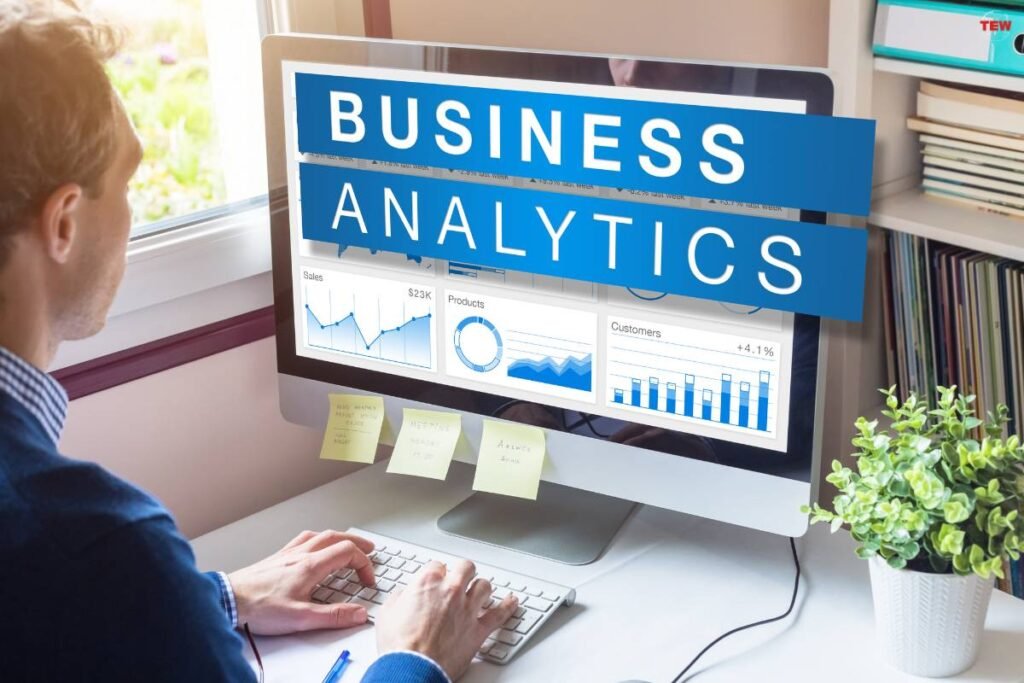An unprecedented opportunity awaits in the bustling commerce landscape, where data flows like an intricate web. Have you ever wondered how the most successful companies seem to anticipate your every need?
It’s not magic; it’s the power of consumer data at play. Welcome to a discussion that goes beyond the ordinary. One that delves into the art of leading by tapping into the goldmine of consumer data. If you’ve ever questioned how to stand out amidst the noise and truly understand what your audience desires, you’re not alone. Navigating these waters can be challenging.
This article with show how to transform concerns about privacy, security, and the ethical implications of data usage into a strategic advantage.
Here are 8 Ways Businesses Can Lead by Leveraging Consumer Data:
1. Understanding Consumer Data
Imagine every online click, purchase, and like forming a puzzle piece that, when assembled, reveals a customer’s unique personality. Consumer data allows you to understand your audience. It encompasses everything from browsing history and social media interactions to transaction records and feedback.
This data evolves as consumers engage with your brand. By analyzing this information, businesses can gain insights into what products or services are most sought after. Also, you can understand how customers navigate your website and even the times they’re most likely to make a purchase.
However, this treasure trove of data also comes with responsibilities. Consumers entrust businesses with their information; in return, they expect transparency and security.
It’s not just about accumulating data; it’s about using it to enhance customer experiences while respecting their privacy. Thus, in 2022, around 200 consumer privacy measures were submitted or under consideration in a minimum of 35 states & the District of Columbia. It was based on the National Conference of State Legislatures (NCSL) research.
Due to legislative restrictions on the gathering, using, and disseminating of private information by organizations, it acted to protect consumer data. Since then, concerns about consumer privacy have been more crucial.
Therefore, this delicate balance between utilizing data for strategic advantage and safeguarding consumer trust is the cornerstone of data-driven leadership.
2. Building a Robust Data Collection System
Effective data collection starts with defining information pertinent to your business goals. Once the objectives are clear, you can tailor your data collection strategy accordingly. It might involve tracking online interactions, purchases, surveys, or feedback.

Integration is key here. Data of consumers flows through various touchpoints, websites, social media, and point-of-sale systems. Furthermore, consolidating this information is paramount.
According to Deep Sync, modern tools and technologies can help aggregate and centralize data. You may use high-quality third-party audience data for your Facebook advertising. They may be used by small companies, agencies, and marketers to successfully contact those they are targeting on social media. It offers a holistic perspective on customer behavior in the process.
Remember, the aim is not just to amass data but to gather it ethically and responsibly. Transparency in data collection practices fosters trust with consumers, ensuring they understand how their information is being used.
3. Analyzing Consumer Data for Insights
Collecting consumer data is just the first step; the real magic happens when this data is transformed into actionable insights.
Analysis is the key that unlocks the door to understanding your customers on a deeper level. Nearly 84% percent of customer service & support leaders see analytics and customer data as essential in accomplishing their goals. Gartner reports that these goals can be met and used for customer support and services in 2023.
Therefore, data analysis allows you to uncover patterns, trends, and correlations that might be hidden from the naked eye. Examining the data lets you discover what products are flying off the shelves. Also, which marketing campaigns are resonating the most, and even the demographics of your most engaged customers?

Sophisticated data analysis tools can crunch the numbers and generate visualizations that make complex information easily digestible. It empowers you to make informed decisions, tailor your strategies, and predict future trends.
4. Personalizing Customer Experiences
Almost 56 percent of businesses analyze which client categories to cultivate based on data that records interactions with their most engaged consumers. Therefore, 74% of buyers are inclined to base their purchase only on personal experience, reports Treasure Data.
Thus, with the insights gained from data analysis, businesses can tailor their offerings to match individual tastes. Customers who frequently buy running shoes might appreciate receiving recommendations for the latest sneaker releases. If someone often shops for organic products, they could receive promotions related to health-conscious choices.
These personalized experiences extend beyond just product recommendations. Emails, marketing messages, and website interfaces can be customized to resonate with each customer. This level of personalization shows that you’re paying attention and genuinely care about their needs.
5. Improving Product Development
By delving into your audience’s preferences, behaviors, and feedback, you can fine-tune your product development process.
Think of it as having a direct line to your customers’ thoughts. You can identify gaps in the market, pinpoint features that resonate, and even predict future trends. Data-backed insights guide you in crafting products aligned with what your customers seek.
Take the example of a tech company. By analyzing data, they might discover that mobile app users often struggle with a certain feature. Armed with this information, they can focus their development efforts on enhancing that feature or providing better user guidance.
6. Enhancing Customer Retention and Loyalty
Understanding your customers on a personal level helps you tailor your interactions. Sending birthday wishes, offering exclusive discounts on products, or simply addressing them by their first name can make them feel valued.

Moreover, data allows you to anticipate needs. Knowing a customer’s buying patterns, you can proactively offer replenishments or suggest complementary items. It not only saves their time but also solidifies their trust in your brand’s reliability.
Data as a tool for relationship-building. It enables you to engage customers beyond the point of sale, nurturing an ongoing connection beyond transactional interactions. Satisfied and valued customers will likely remain loyal and refer others to your business.
7. Forecasting and Strategic Planning
Imagine you run a fashion company. By studying consumer data, you might notice that certain colors and styles are gaining popularity. With this information, you can adjust your upcoming product line to align with these trends. It can increase the likelihood of resonating with your target audience.
Data doesn’t just inform product development; it also guides decisions related to marketing, distribution, and pricing. If you can predict a surge in demand for a particular product, you can ensure it’s well-stocked and marketed effectively.
8. Data Guides Business Leadership and Connection
In the dynamic landscape of modern business, consumer data isn’t just a resource but a compass guiding visionary leadership. By weaving insights from consumer behaviors, preferences, and interactions, businesses can unlock innovation, personalized experiences, and strategic foresight.
However, this journey has its challenges; ethical considerations and privacy concerns must be navigated with care. As businesses embrace the power of data-driven decisions, they hold the potential to lead their industries and create lasting connections with their customers.




